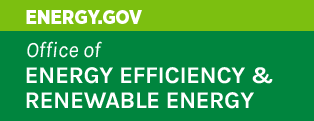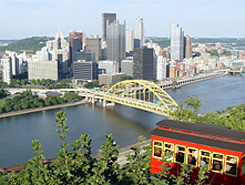Pittsburgh Region Clean Cities
The Pittsburgh Region Clean Cities works with vehicle fleets, fuel providers, community leaders, and other stakeholders to identify community-driven choices that save energy and promote the use of alternative fuels and advanced vehicle technologies in transportation.
Contact Information
General Stats
- Designated: December 05, 1995
- Population: 4,070,537 (based on 2022 Census estimate)
- Area: 24,834 sq. mi.
- Local/Regional Service Area: Counties: Allegheny, Armstrong, Beaver, Bedford, Blair, Butler, Cambria, Cameron, Centre, Clarion, Clearfield, Clinton, Crawford, Elk, Erie, Fayette, Forest, Fulton, Greene, Huntingdon, Indiana, Jefferson, Juniata, Lawrence, McKean, Mercer, Mifflin, Potter, Somerset, Venango, Warren, Washington and Westmoreland
Alternative Fueling Stations
Including public and private stations

- Biodiesel (B20 and above): 2
- Electric (charging outlets): 1,985
- Ethanol (E85): 123
- Hydrogen: 0
- Natural Gas: 34
- Propane: 42
Energy Use Impact*
Annual Energy Impact
Annual Energy Impact by Alternative Fuel Vehicle Project Type
Emissions Reduced*
Annual Emissions Reduced
Emissions Reduced by Alternative Fuel Vehicle Project Type
*2023 DOE-Verified Metrics

Kristen Sabol
Kristen Sabol is currently serving as the Director of Pittsburgh Region Clean Cities.
Learn about just some of the projects from Pittsburgh Region Clean Cities. Visit the Pittsburgh Region Clean Cities website for more projects and information.
Projects and Case Studies- Pennsylvania Partnership for Promoting Natural Gas Vehicles
- Charge to Work USA: National Workplace Charging Program
- Internal Combustion Engine Mechanics Introduction to Electric Vehicle Repair: A National Franchise Training Model for Diversifying the Expertise of Today's Auto Technician
- Renewable Natural Gas from Landfills Can Reduce Fuel Costs and Increase Independence

